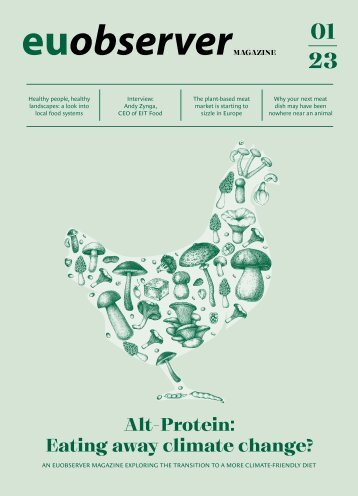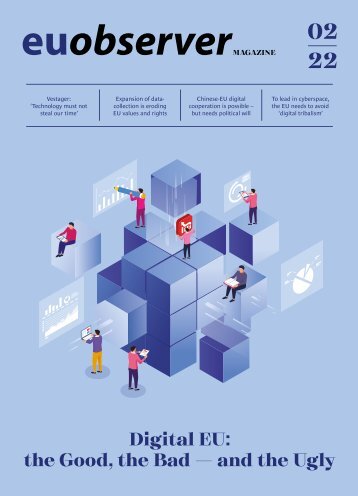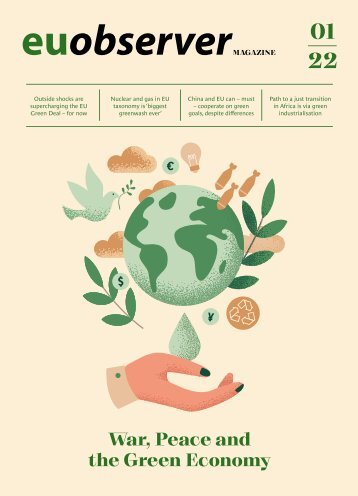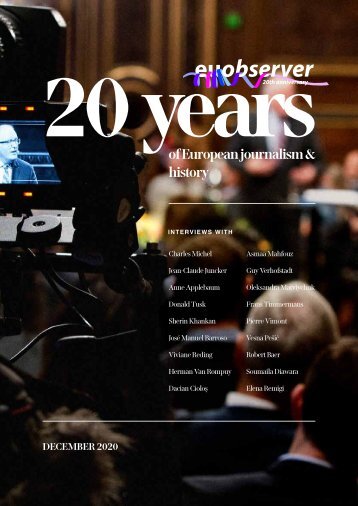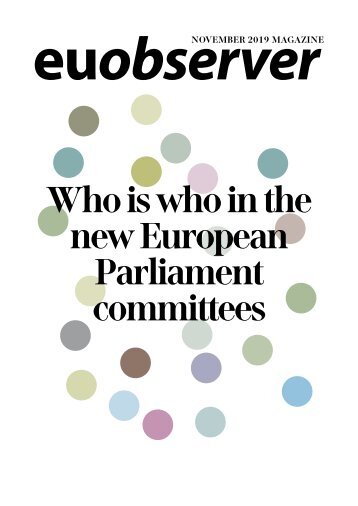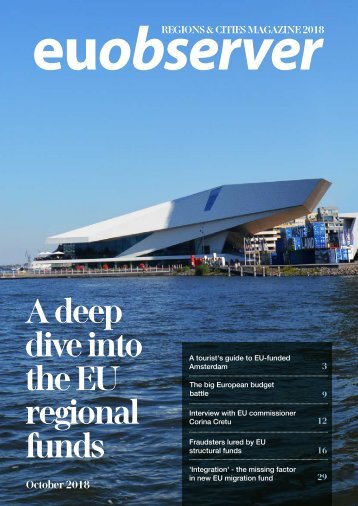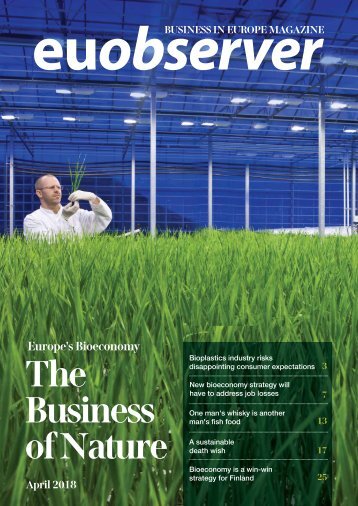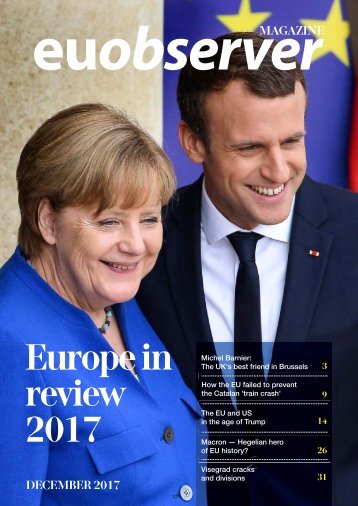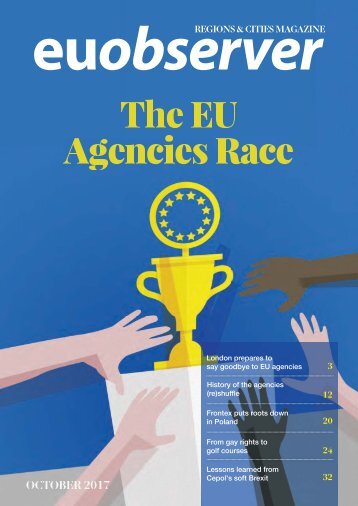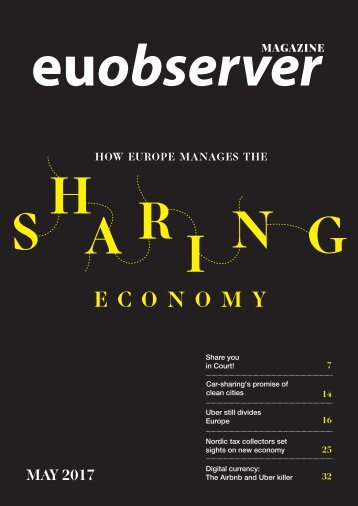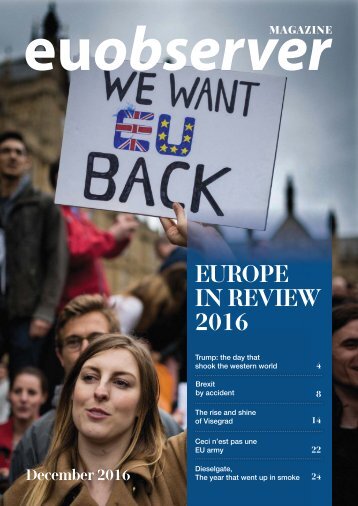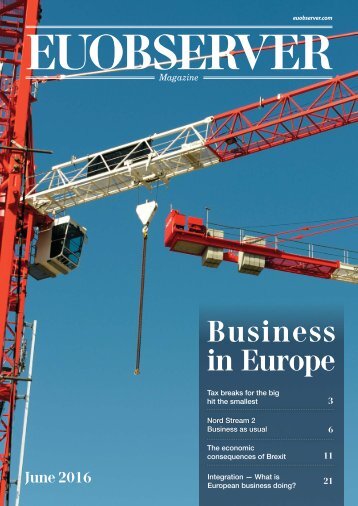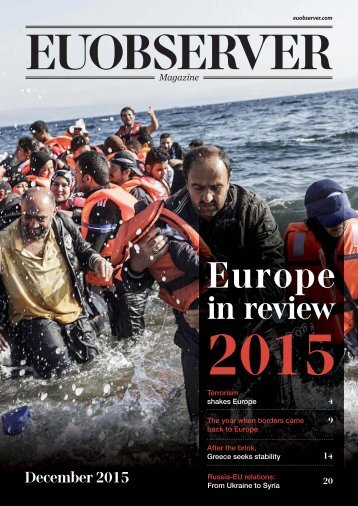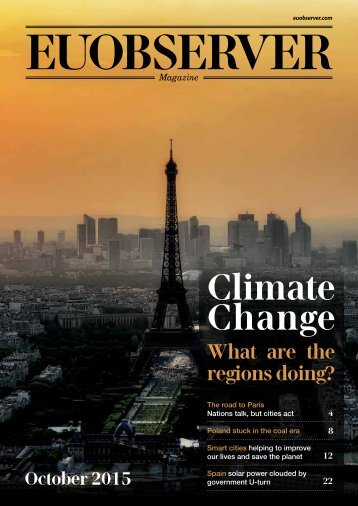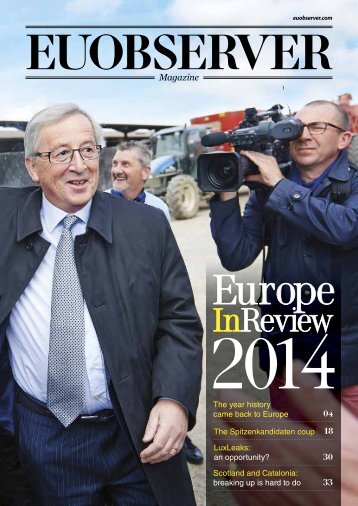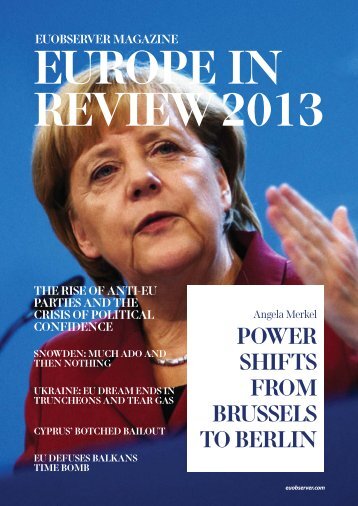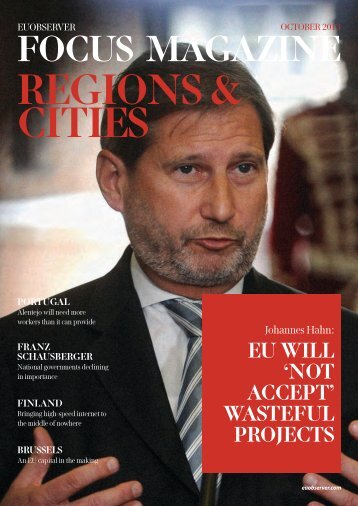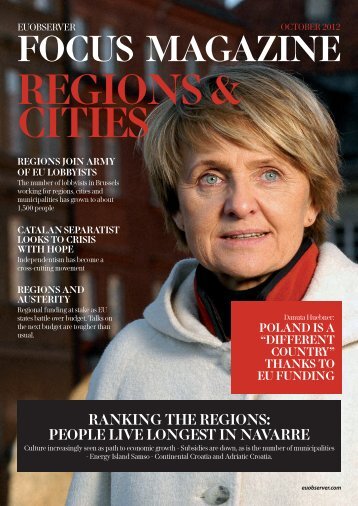Business in Europe
- Text
- Europe
- Union
- Commission
- Business
- Employment
- Smes
- Corporations
- Competition
- Antitrust
- Brexit
- Tax
- Trade
- Economy
- Industry
- Business
- Euobserver
euobserver EDITORIAL
euobserver EDITORIAL ADDRESS EUobserver Magazine Rue Montoyer 18B 1000 Brussels Belgium contact@euobs.com Editor Editor: Lisbeth Kirk ARTICLE LAYOUT EUobserver Magazine Rue Montoyer 18B 1000 Brussels Belgium advertising@euobserver.com EUobserver Magazine Rue Montoyer 18B 1000 Brussels Belgium Meg Chang mc@euobs.com PUBLISHER EUobserver.com ASBL www.euobserver.com EUobserver is an independent online newspaper which values free thinking and plain speech. We aim to support European democracy by giving people the information they need to hold the EU establishment to account. ly independent of the EU institutions. Our team of EU capital and do in-depth investigations on topics of special interest. If you want EUobserver to look into a our sources. Cover photo What is European Business? European Business is not one single entity. It is composed of big companies such as Vodafone, BP, Unilever, Siemens and L'Oreal as well as 23 million more or less known small companies. Small and medium-sized enterprises (SMEs) are often referred to as the backbone of the European economy. They represent from Eurostat show that 9 out of 10 enterprises in the EU employed fewer than 10 people. Whatever is keeping Brussels busy is of interest to these businesses. For example, integrating the one million refugees who arrived in Europe in 2015 is only possible in co-operation with the continent's companies. The malfunctioning Schengen area and re-introduction of border controls in Europe make business more complicated. Also, massive information leaks like LuxLeaks and the Panama Papers surely affect business and may lead to new tax regimes. current cross-border tax-avoidance schemes, but they need to compete with multinationals, some of which get away with paying less than one In the UK, business has played a key role in funding both the Leave and Remain campaigns for the EU referendum. There is simply a business angle to every topic that Brussels has to deal with. This magazine is all about that. And if you like it, we will do it again. Let us know. Lisbeth Kirk lk@euobserver.com 02 — BUSINESS IN EUROPE JUNE 2016
TAX BREAKS FOR THE BIG HIT THE SMALLEST Secret deals cut revealed in 2014 by the International Consortium of Investigative showed that some managed to get away with less Photo: Chris Tolworthy Tax breaks awarded to multinationals like Apple and Starbucks in Luxembourg allow their businesses to prosper, often at the expense of Europe’s 23 million smaller firms. By Nikolaj Nielsen Oware company employs around 100 people and pays 30 percent tax on profits. Microsoft, his biggest competitor, pays 3 percent. “We are paying 10 times more taxes on profits able,” said Grun, who is also the president of the Brussels-based European Digital SME Alliance. The EU has around 23 million small and medium-sized companies. They account for 99 percent of enterprises in the EU. Of those, around 26,000 are in the digital sector. And they employ millions. They also compete against multinational corporations. But Apple, Starbucks and many others benefit from huge tax breaks. KNOCK-ON EFFECT ON EUROPEAN BUSINESS Secret deals cut in Luxembourg, revealed in 2014 by the International Consortium of Investigative Journalists, showed that some big firms managed to get away with paying less than 1 percent. Some of those deals were made under the stewardship of EU commission president Jean- Claude Juncker when he was the prime minister and finance minister of Luxembourg. BUSINESS IN EUROPE JUNE 2016 — 03
- Page 1: euobserver.com Magazine Business in
- Page 5 and 6: made under the stewardship of EU co
- Page 7 and 8: 24-tonne steel pipes Photo: Nord St
- Page 9 and 10: yachts take part in European races
- Page 11 and 12: Headache for businesses, uncertaint
- Page 13 and 14: coughed up €2 million between the
- Page 15 and 16: Fund spokesman Thomas Sevang told E
- Page 17 and 18: IS THE‘CIRCULAR ECONOMY’ A REST
- Page 19 and 20: IN A CHANGING WORLD, IT’S EASIER
- Page 21 and 22: Integration - What is European Busi
- Page 23 and 24: potential lack of skilled labour Ph
- Page 25 and 26: REFUGEES WILL GIVE EU ECONOMY A BOO
- Page 27 and 28: The measures heightened fears that
- Page 29 and 30: Hello! Stay informed. Stay current.
- Page 31 and 32: Roughly 70 percent of the European
- Page 33 and 34: US president Barack Obama’s term
- Page 35 and 36: TTIP faces political and popular re
Inappropriate
Loading...
Mail this publication
Loading...
Embed
Loading...

